Housebreaking a dog can be a frustrating time but it is an essential lesson in how to train a puppy. It may seem like no matter what you do you cannot get your dog to “Go” outside and then end up cleaning up a mess or puddle in your home. This can drive you to consider pee-pads and dedicating an area inside your home for your dog’s relief. It may even be that your dog knows exactly what you need him to do when he is outside but chooses not to do it – just to test your housebreaking strategy. Shouting, baby talk, and overall frustration play right into the dog’s poor potty habits.
Usually the issue can be cured by improving the strategy for housebreaking your dog by focusing on a conscientious training schedule. Teaching your puppy by giving him the opportunity to relieve himself is the first order of business. This lesson is the beginning of any and all dog obedience training.
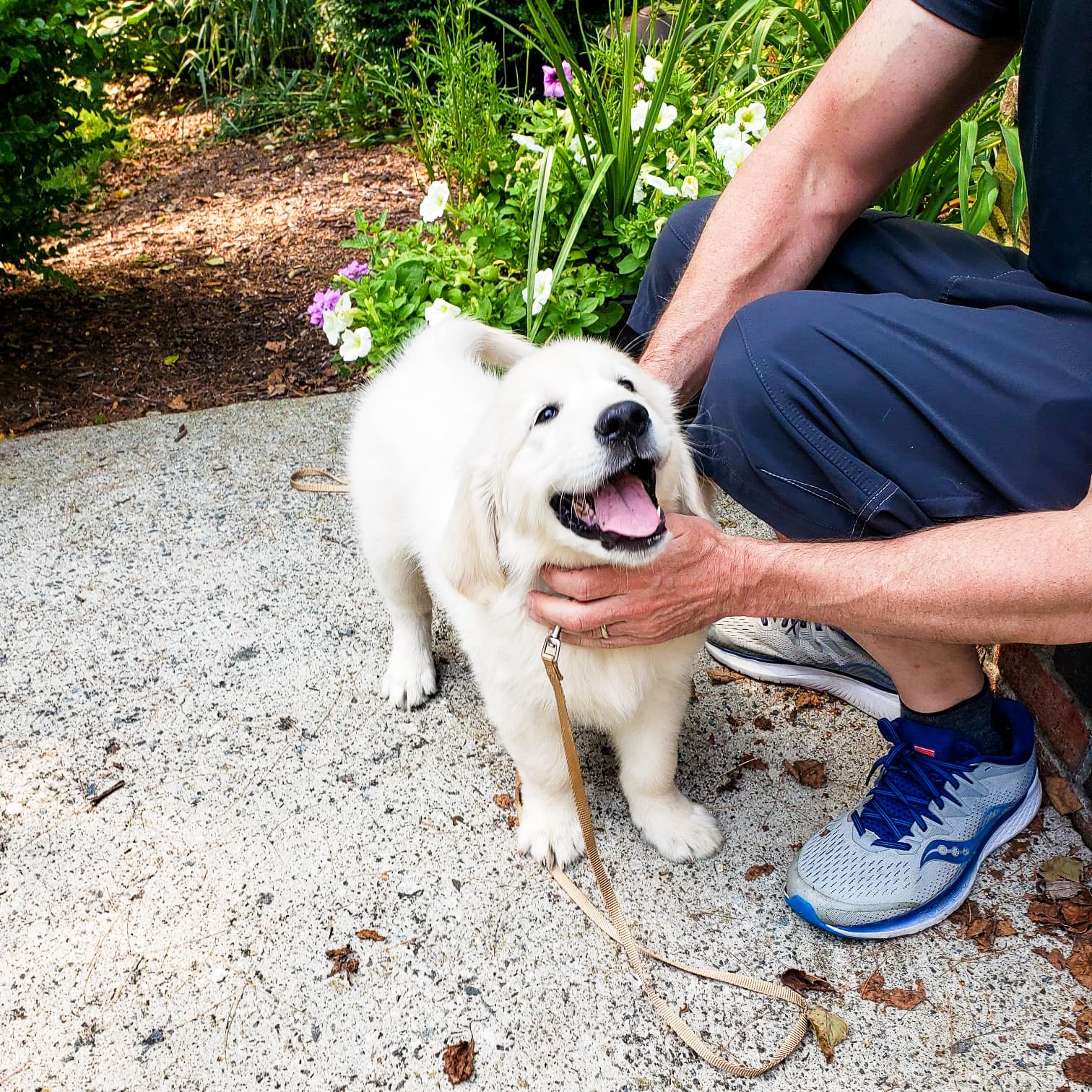
Training Tips for Housebreaking Your Dog
If you suspect there may be a medical issue related to housebreaking your dog, have your veterinarian check for a medical issue.
- Schedule: If you’re waiting for your dog to tell you when they have to go, you’ll be more successful if you take your dog out for full relief on a regular schedule. Download our free example schedule & template.
- Crate: Crate training your dog teaches a calm state of mind that is integral to our training methods, but it also reduces free roaming and using your house as the bathroom. Free roaming the house is a recipe for accidents! How to Crate Train Your Puppy.
- Leash: Be patient and teach a command like “Do your business” or “Potty” when you take your pup to the designated potty spot. Potty training is a leash exercise. Keep the leash on inside to have better control.
- Location: We recommend training for outside relief, instead of pee pads, whenever possible. You get more time outside with your dog which is great for building a natural and secure relationship with your canine. Go to the same outside spot each time and wait for them to potty.
- Management: Monitor the amount of food and water he gets throughout the day. Ensure he isn’t over-drinking or gorging himself at mealtime.
- Praise: Do give gentle praise after your dog has gone potty! Do not use baby talk and don’t rush them by opening a poop bag or talking to them while they’re busy. Wait for the full relief.
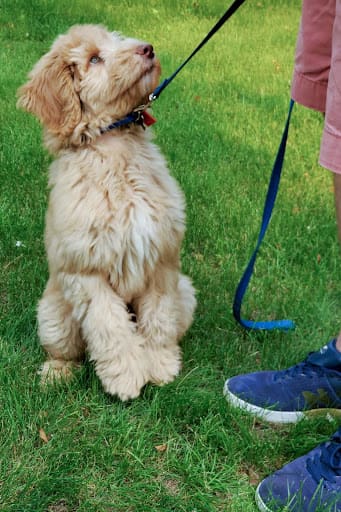
Trust that this issue will be overcome with your patience and a consistent schedule! Young dogs generally get right with the program whereas older dogs may need more rigorous dog training to overcome poor potty habits. And as always, clean up after your dog! Keeping a sanitary yard and community is important for the health of humans and canines.
Our In-Person Programs
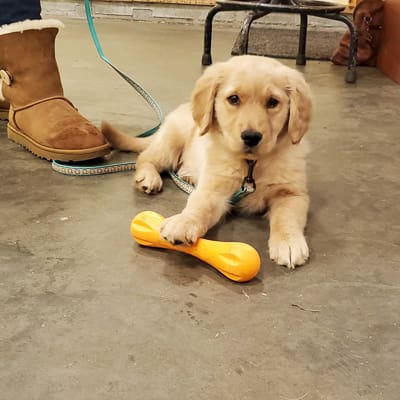
Team Puppy Training
Encourages your leadership and show how you to nurture good behavior.
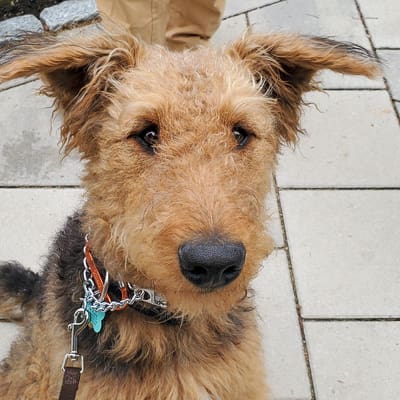
Foundation Training
Covers the basics of good dog behavior as well as some behavior modification.
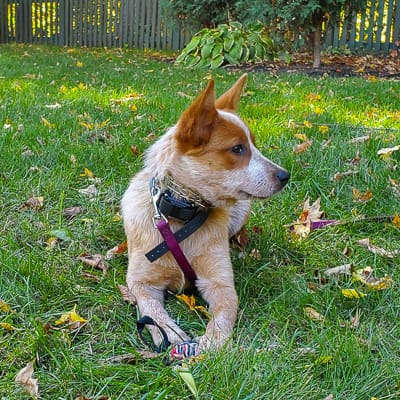
Remote Collar Training
Foundation Training with e-collar for total off-leash freedom and behavior modification.
What our clients have to say...
Dog Coach listened carefully and observed keenly my interaction and tone of voice with Bella. At nearly 6 months now, she is the best-trained dog I've had. It was a worthwhile experience!
We want to thank Dog Coach for your patience and encouragement! Our dogs are really coming into their own as the perfect family dogs we were looking for!
Such a great investment! We got a puppy and had a toddler... It was overwhelming at first. Working with Dog Coach has been the gift that keeps on giving.
